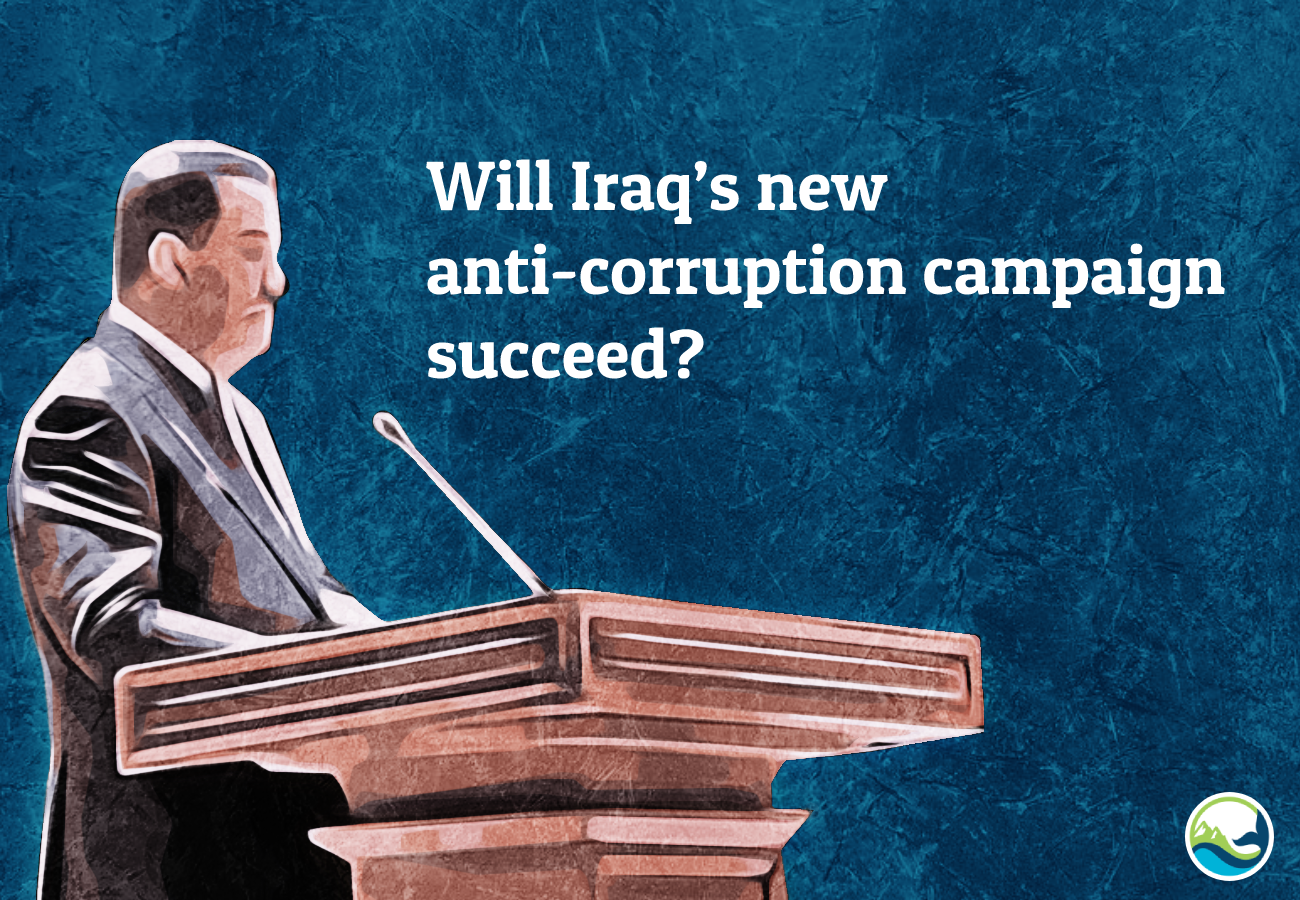
Will Iraq’s new anti-corruption campaign succeed?
08 Nov 2022 ( AL Monitor )
Iraq’s new Prime Minister Mohammed Shia al-Sudani was keen in his first speech to brandish the slogan of combating corruption, limiting its spread, and holding corrupt persons and those involved accountable.
In the speech, delivered before the Iraqi parliament, Sudani said, “The pandemic of corruption that has affected all aspects of life is more deadly than the coronavirus.”
“[Corruption] was behind the many economic problems, weakening the prestige of the state and increasing poverty, unemployment and poor services,” he added, stressing that his government’s anti-corruption program “includes resolute, multifaceted, and multi-level policies and procedures to combat rampant corruption.”
Sudani was quick in taking swift measures against corruption. He dismissed the head of the Baghdad Investment Committee today and handed his file over to the Integrity Committee to investigate the alleged corruption.
He also relieved the director general of investigations in the Integrity Commission of his duties due to his failure to take firm action related to tax trust cases, referring him to the appropriate courts so that required legal measures can be taken.
Former Iraqi Prime Minister Mustafa al-Khadimi’s government previously announced last August suspicion of major corruption amounting to more than $3 billion in the General Tax Department in the Ministry of Finance, which led to the dismissal of the director of the department at that time.
Sudani also pushed in his speech for the oil-smuggling file to be opened and revealed that one “party” is involved, without revealing the details.
In addition to the above measures, Sudani announced the formation of a special anti-corruption commission to support the Integrity Commission.
The commission is similar to the Diwani Order Committee 29 — known as the Abu Ragheef Committee — founded by his predecessor, Kadhimi, of which Sudani was a vocal opponent. Kadhimi had formed the anti-corruption committee in agreement with the judiciary.
The committee was able to achieve relatively acceptable results, but it was dissolved for political reasons and under judicial cover. This raises questions about the success of any future attempts to form similar anti-corruption commissions.
Former Finance Minister Ali Abdul-Amir Allawi previously said that more than $250 billion were plundered between 2003 and 2020.
Allawi, who resigned from his position on Aug. 16, expressed shock in his lengthy resignation letter at “the extent of the deterioration of government mechanisms during the past 15 years and that the major stakeholders have effectively taken over the state,” regretting that the Finance Ministry itself was stuck with people who “had no significant experience or language skills and had little awareness of modern practices in public administration and finance.”
Jeanine Hennis-Plasschaert, special representative of the secretary-general for the United Nations Assistance Mission for Iraq, said a few days ago that “corruption is Iraq’s biggest challenge,” adding that “it stands against the progress and development” of the country.
This statement expresses the extent of concerns among diplomatic mission officials operating in Iraq regarding the collapse of the existing state structure, which has become extremely fragile with a series of scandals involving influential politicians and senior officials.
As he took office, Sudani made sure to place the corruption issue high on his priority lists for the following reasons:
First, the prime minister seeks to maintain the international support he received after forming his government. The Cabinet saw the light of day amid critical circumstances, regionally and internationally. Sudani realized he could not maintain international support if he does not deal with corruption and bring the most corrupt politicians to trial.
Second, Sudani needs to provide tangible and quick results to win over the Iraqi people. He also needs to build a popular base in a prelude to the provincial elections slated for next year and the legislative elections in three years, or even earlier should the political parties agree on holding early elections. Sudani’s Euphrates Movement has only three seats out of 328 in parliament.
Third, the premier wants to reassure the highest Shiite authority in Najaf, Ali al-Sistani, and leader of the Sadrist movement Muqtada al-Sadr — who have remained silent so far — stressing the need to combat corruption and charge implicated politicians.
All successive governments and their leaders have called for the need to combat corruption, starting with Nouri al-Maliki, who ruled Iraq for eight years (2006-2014) to Haider al-Abadi (2014-2018) and then Adel Abdul-Mahdi, who formed the Supreme Council for Combating Corruption.
The council held about 20 sessions, but its findings that were presented to the judiciary were not clear — especially with regard to the fate of the defendants, who included ministers, governors and undersecretaries.
In such circumstances, Sudani faces many tough challenges in his anti-corruption campaign due to deep penetrations of corruption in all administrative and bureaucratic systems of the Iraqi government, patronage networks, cronyism and partisan quotas.
SEE THE ORIGINAL ARTICLE


